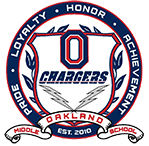Journalism students gain leverage in high school and college
Research Shows that Journalism Students Do Better
As this review of the literature was being compiled and written, one expert was referred to the author time and time again by both national organizations and individuals: Jack Dvorak, Professor of Journalism and Director of the High School Journalism Institute at Indiana since 1986. He is in his 29th year of teaching at the college level, (his first six years of teaching were at the high school level), and his research interests include journalism student performance in language arts, especially compared with non journalism students.
He has written articles about the publications experience as a predictor of college success (Dvorak, 1989) and high school publications experience as a factor in college level writing (Dvorak, 1988).
Professor Dvorak coauthored the book Journalism Kids Do Better: What Research Tells Us About High School Journalism. Tens of thousands of students work on high school newspapers, and the research in this book shows that journalism students do better on grades, ACT tests and AP exams (Dvorak, Lain, & Dickson, 1994). It also reported that students who had worked on a newspaper or yearbook staff in high school did better in high school and college than students who had no journalism experience.
Journalism Kids Do Better contains a large body of evidence that offers statistical proof of the validity of the claims summarized next:
• High school students who were members of a journalism staff had higher grade-point-averages in English, social studies, math, and science than students who were not members of a journalism staff.
• High school students who were members of a journalism staff scored in the 81st percentile in the English portion of the ACT test. High school students who were not members of a journalism staff scored in the 69th percentile.
Students with journalism staff experience also did better on the social studies portion of the test. They scored about the same in science and were significantly lower in mathematics than non journalism students.
• High school students who were members of a journalism staff were more involved in extracurricular activities such as clubs, student government and were elected captain of a team more often than students who were not members of a journalism staff. They were also more likely to take an advanced English placement course and to volunteer in the community.
• College students who were members of a high school journalism staff had higher grade-point averages in their first college English courses than students who were not members of a high school journalism staff.
• College students who were members of a high school journalism staff had higher overall grade-point averages than students who were not members of a high school journalism staff.
• College students who were members of a high school journalism staff wrote better on the ACT COMP (College Outcome Measures Test) than students who were not members of a high school journalism staff.
• Journalism kids do better in 10 of 12 major academic areas.
• Journalism kids write better in 17 of 20 comparisons of collegiate writing.
• Journalism kids value high school journalism more highly than required English courses in fulfilling major language arts competencies.
• Journalism kids are ‘doers’ in schools—they’re more involved in co-curricular and community activities.
• Journalism students make better high school and college grades than their peers with no newspaper or yearbook staff experience. They earn higher scores than their peers on the ACT standardized examinations. Their writing is better. And they are more involved in their schools and off-campus communities.
• Students who work on High School Newspapers Perform Higher in Language Arts Professor Dvorak’s article “Journalism Student Performance in Language Arts” (1999) reports on major studies in this area.
• “A 1988 study of college freshmen divided them into four groups, according to American College Testing (ACT) English Assessment scores in order to equalize abilities in language arts competencies. Those with high school newspaper or yearbook experience had higher writing scores than did non-publications students in 13 of 16 test comparisons. All essays were graded by English professors under the guidance of ACT personnel (Dvorak, 1988).
• . . . Another study compared students who had completed one year of college and who had been on the staff of a high school yearbook or newspaper with those who had not been involved with school publications. In 10 of 12 statistical academic comparisons, journalism students earned significantly higher scores than their non publications counterparts: cumulative freshman college grade point average; first collegiate English course; ACT Composite score; ACT English score; ACT Social Studies score; mean score of the final four high school courses taken prior
to the ACT Assessments in English, social studies, mathematics and natural science; final high school English grade; final high school social studies grade; final high school mathematics grade; and final high school natural science grade. ACT Mathematics Assessment was significantly lower among journalism students, and ACT Natural Science Assessment scores were nearly identical between publications and non publications students (Dvorak, 1989). . . .”
[If you would like to talk with Jack Dvorak, he would be happy to talk with you. His E-mail address is <[email protected]>, his office phone is (812) 855-0865 and home phone is (812) 339-9770.]
